Studying medicine in Poland offers a dynamic and high-quality education experience for international students. Poland boasts several esteemed medical universities with modern facilities and experienced faculty. Most notably, universities like the Medical University of Warsaw and Wroclaw Medical University offer comprehensive medical programs taught entirely in English, attracting students from all over the globe. The curriculum is designed to meet international standards, providing a solid foundation in medical theory and practical training through clinical rotations. Additionally, compared to other European countries, the cost of living and tuition fees in Poland are relatively affordable, making it an attractive destination for aspiring medical professionals.
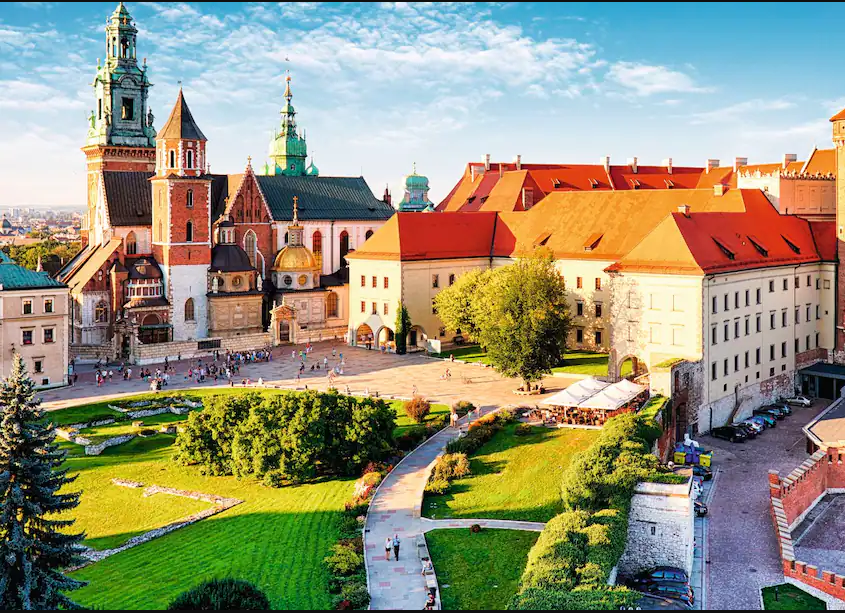
Poland, located in Central Europe, is a nation steeped in rich history, vibrant culture, and stunning landscapes. With a population of over 38 million people, it is one of the largest countries in the region. Poland's history is marked by periods of both triumph and turmoil, including its role in shaping European civilization, its struggle for independence, and its endurance through wars and partitions.
Today, Poland is a thriving democracy and a member of the European Union, playing an active role in regional and global affairs. Its capital city, Warsaw, is a bustling metropolis that seamlessly blends historical charm with modern amenities. The country's economy is robust, driven by sectors such as manufacturing, agriculture, and technology.
Poland's warmth, resilience, and cultural richness make it a fascinating destination for travelers and a dynamic player on the global stage


| Intake | June – October |
|---|---|
| Score Required in 10+2 | 65% - 75% in PCB |
| NEET Requirement | Yes, NEET Qualified |
| Fees Structure | 10000 – 14000 Euro Per Year |
| Hostel | 200 to 500 Euro Per Month |
| Duration | 5+1 Years (Including Internship) |
| Medium of Instruction | English |
| Top Medical University | The Medical University of Warsaw Wroclaw Medical University |
| Recognition | WHO, WFME, ECFMG, NMC, FAIMER, AMSE |
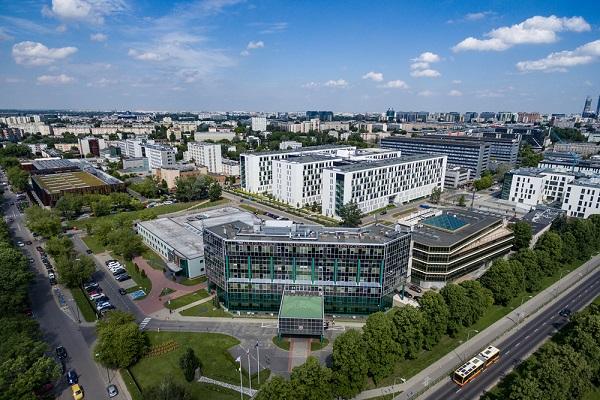
The Medical University of Warsaw (MUW), located in the capital city of Poland, stands as a prominent institution in both Poland and Europe, renowned for its excellence in medical education, research, and healthcare provision. Established in 1950, MUW has evolved into a leading academic and scientific center, fostering innovation, collaboration, and societal impact in the realm of medicine and healthcare.
Medical University of Warsaw boasts a rich history shaped by its commitment to advancing medical knowledge and practice. From its inception, the university has prioritized the training of healthcare professionals to meet the evolving needs of society. Over the decades, MUW has adapted its curriculum and research focus to reflect emerging medical trends, technological advancements, and societal challenges. Today, it stands as a beacon of medical education, attracting students and faculty from around the globe.
The university's academic programs encompass a wide range of disciplines within the medical field, including medicine, dentistry, pharmacy, nursing, and allied health sciences. With a comprehensive curriculum designed to blend theoretical knowledge with practical experience, MUW ensures that its graduates are well-equipped to tackle the complexities of modern healthcare delivery.
At the heart of Medical University of Warsaw educational mission is its faculty, composed of esteemed medical professionals, researchers, and educators. These individuals bring a wealth of experience and expertise to the classroom, enriching the learning environment and inspiring the next generation of healthcare leaders. Through their mentorship and guidance, students are nurtured to excel in their chosen fields and make meaningful contributions to the advancement of medical science.
Beyond the classroom, The Medical University of Warsaw is dedicated to fostering a culture of research and innovation. The university is home to numerous research centers, laboratories, and institutes, where faculty and students collaborate on groundbreaking research projects spanning basic science, clinical research, and translational medicine. From exploring the molecular mechanisms of disease to developing novel therapeutic interventions, The Medical University of Warsaw research endeavors are at the forefront of medical discovery.
The Medical University of Warsaw commitment to research excellence is further evidenced by its partnerships and collaborations with other academic institutions, healthcare organizations, and industry stakeholders. Through these alliances, The Medical University of Warsaw enhances its research capabilities, expands its scientific network, and accelerates the translation of research findings into clinical practice. Moreover, such collaborations facilitate knowledge exchange and interdisciplinary collaboration, driving innovation and addressing global health challenges.
In addition to its academic and research activities, The Medical University of Warsaw plays a vital role in healthcare delivery within Poland and beyond. The university operates several affiliated hospitals and clinics, where students gain hands-on clinical experience under the supervision of experienced healthcare professionals. Through these clinical rotations, students develop essential clinical skills, bedside manner, and professional competencies, preparing them for successful careers in healthcare.
Furthermore, The Medical University of Warsaw healthcare facilities provide a wide range of medical services to the community, ranging from primary care to specialized treatments and procedures. As a leading healthcare provider, The Medical University of Warsaw is committed to delivering high-quality, patient-centered care, informed by the latest advances in medical science and technology. Additionally, MUW actively engages in public health initiatives, health promotion campaigns, and community outreach efforts to improve the health and well-being of the population.
The Medical University of Warsaw impact extends beyond the borders of Poland through its international collaborations, exchange programs, and global health initiatives. The university welcomes students, researchers, and faculty from diverse backgrounds, fostering a multicultural learning environment that promotes cross-cultural understanding and collaboration. Through its international partnerships, MUW facilitates the exchange of knowledge, best practices, and expertise, contributing to global health diplomacy and capacity building.
Medical University of Warsaw stands as a beacon of excellence in medical education, research, and healthcare provision. With its rich history, dedicated faculty, cutting-edge research, and commitment to societal impact, The Medical University of Warsaw continues to shape the future of medicine and make a lasting difference in the lives of patients, students, and communities alike. As it looks ahead, MUW remains steadfast in its mission to advance medical knowledge, foster innovation, and train the next generation of healthcare leaders to meet the challenges of tomorrow's healthcare landscape.
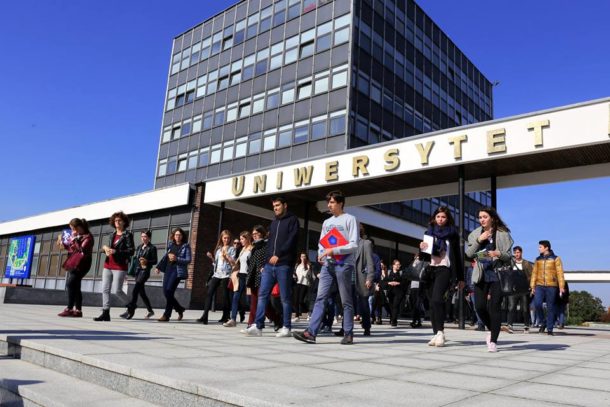
The Medical University of Nicolaus Copernicus University, located in Poland, stands as a prestigious institution renowned for its commitment to excellence in medical education, research, and healthcare delivery. With a rich history dating back to its establishment in 1945, the university has evolved into a leading center of medical learning, producing skilled professionals and contributing significantly to advancements in healthcare globally.
The roots of the Medical University of Nicolaus Copernicus University trace back to the aftermath of World War II when the need for medical education and healthcare services was paramount. Established in 1945 in the city of Bydgoszcz, Poland, the university began as a modest institution with a focus on training physicians to address the pressing healthcare needs of the time. Over the decades, it expanded its scope, facilities, and academic offerings, earning a reputation for excellence in medical education and research.
Medical University of Nicolaus Copernicus University offers a comprehensive range of undergraduate, graduate, and postgraduate programs in various medical disciplines, including medicine, dentistry, pharmacy, nursing, and allied health sciences. These programs are designed to equip students with the knowledge, skills, and clinical experience necessary to excel in their respective fields and make meaningful contributions to healthcare practice and research.
The curriculum is continually updated to reflect the latest advancements in medical science and technology, ensuring that students receive a cutting-edge education that prepares them for the complexities of modern healthcare delivery. Emphasis is placed not only on academic rigor but also on practical training, clinical rotations, and research opportunities, allowing students to gain hands-on experience and develop critical thinking skills.
The Medical University of Nicolaus Copernicus University is a hub of scientific inquiry and innovation, with faculty members and students actively engaged in groundbreaking research across various medical disciplines. The university's research endeavors encompass basic science, translational research, clinical trials, and health services research, addressing a wide range of pressing healthcare challenges and advancing medical knowledge.
Collaboration with national and international research institutions, industry partners, and healthcare organizations enhances the university's research capabilities and facilitates knowledge exchange and technology transfer. Research outputs are disseminated through publications in peer-reviewed journals, presentations at conferences, and collaborations with policymakers, contributing to the global body of medical knowledge and informing evidence-based practice.
As a prominent academic medical center, the Medical University of Nicolaus Copernicus University is closely affiliated with several teaching hospitals, clinics, and healthcare facilities where students receive clinical training under the supervision of experienced faculty members and healthcare professionals. These clinical rotations provide students with invaluable hands-on experience in diagnosing and treating patients, managing healthcare teams, and navigating ethical and social issues in healthcare delivery.
The university's commitment to excellence in clinical practice extends beyond education to include patient care and community engagement. Faculty members and students actively participate in providing healthcare services to underserved populations, promoting health awareness and disease prevention initiatives.
Recognizing the importance of global perspectives in medical education and research, the Medical University of Nicolaus Copernicus University actively promotes international collaboration and exchange programs for students, faculty, and researchers. These initiatives enable students to gain exposure to diverse healthcare systems, cultures, and medical practices, fostering cross-cultural understanding and preparing them to work in multicultural environments.
The university also hosts international conferences, symposiums, and workshops that bring together experts from around the world to share knowledge, collaborate on research projects, and address global health issues. Additionally, partnerships with foreign universities and research institutions facilitate joint research projects, student exchanges, and faculty mobility, enriching the academic experience and promoting cross-border collaboration in medical education and research.
Medical University of Nicolaus Copernicus University in Poland stands as a beacon of excellence in medical education, research, and healthcare delivery. With a rich history, a commitment to academic excellence, a focus on research and innovation, and a dedication to serving the community, the university continues to nurture the next generation of healthcare professionals and contribute to advancements in medical science and practice on both national and international levels. As it looks to the future, the university remains steadfast in its mission to educate, innovate, and lead in the pursuit of better health for all.
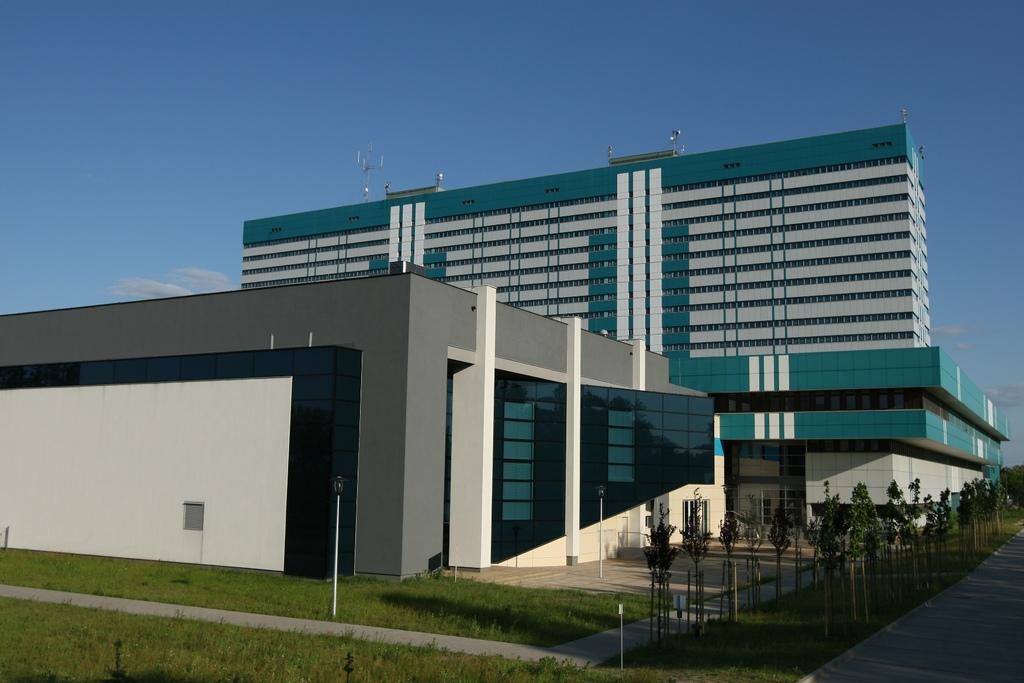
The Medical University of Lodz, located in Lodz, Poland, stands as a cornerstone of medical education, research, and healthcare provision in the country. With a rich history dating back to its establishment in 1945, the university has evolved into a prominent institution known for its academic excellence, innovative research endeavors, and contributions to the healthcare sector. This comprehensive overview delves into the institution's history, academic programs, research initiatives, infrastructure, and its broader impact on healthcare and society.
The Medical University of Lodz traces its origins to the aftermath of World War II when Poland underwent significant reconstruction efforts, including the restructuring of its education system. Established in 1945, the university emerged as a response to the pressing need for well-trained medical professionals to address the healthcare challenges facing post-war Poland. Since its inception, the institution has been committed to fostering excellence in medical education, research, and healthcare practice.
The Medical University of Lodz offers a diverse range of undergraduate, graduate, and postgraduate programs across various medical disciplines, including medicine, dentistry, pharmacy, nursing, and health sciences. Its comprehensive curriculum emphasizes a holistic approach to medical education, integrating theoretical knowledge with practical clinical experiences to prepare students for the complexities of modern healthcare practice.
Undergraduate programs typically span six years, with the first few years focusing on foundational sciences and preclinical coursework, followed by clinical rotations and clerkships in affiliated hospitals and healthcare facilities. Graduate and postgraduate programs provide opportunities for specialization and advanced training in specific medical fields, enabling students to pursue careers as clinicians, researchers, educators, and healthcare leaders.
Research is a cornerstone of the Medical University of Lodz, driving innovation and advancing medical knowledge to address pressing healthcare challenges. The university is home to numerous research centers, institutes, and laboratories dedicated to various medical disciplines, where faculty, researchers, and students collaborate on a wide array of research projects.
From fundamental biomedical research to clinical trials and translational studies, the university's research endeavors span the spectrum of medical science. Areas of focus include oncology, neuroscience, infectious diseases, regenerative medicine, pharmacology, and public health, among others. Through its research activities, the university contributes to scientific advancements, medical breakthroughs, and the development of novel therapies and treatment modalities.
The Medical University of Lodz boasts modern facilities and state-of-the-art infrastructure to support its academic and research endeavors. Its campus encompasses lecture halls, classrooms, laboratories, libraries, and specialized facilities for clinical skills training and simulation. The university maintains affiliations with several teaching hospitals and healthcare institutions where students gain hands-on clinical experience under the guidance of experienced healthcare professionals.
The university continually invests in upgrading its facilities and resources to ensure that students have access to the latest technology and equipment needed for their education and research activities. Moreover, its strategic partnerships with industry, government agencies, and international institutions facilitate collaborative research initiatives and technology transfer, fostering innovation and entrepreneurship within the university community.
The Medical University of Lodz actively promotes international collaboration and exchange, recognizing the importance of global partnerships in advancing medical education, research, and healthcare delivery. The university has established collaborative agreements with numerous academic institutions, research organizations, and healthcare providers worldwide, facilitating student exchange programs, joint research projects, and faculty collaborations.
Through its international initiatives, the university fosters cross-cultural understanding, enhances academic mobility, and creates opportunities for students and faculty to engage with diverse perspectives and experiences in medicine and healthcare. Additionally, international collaboration strengthens the university's reputation as a leading academic and research institution on the global stage, attracting talented students, scholars, and researchers from around the world.
As a leading medical institution, the Medical University of Lodz has a profound impact on healthcare and society, both regionally and nationally. Its graduates go on to become skilled healthcare professionals, serving communities across Poland and beyond as physicians, dentists, pharmacists, nurses, and allied health professionals. The university's research contributions drive medical innovation and shape healthcare policies and practices, addressing the evolving needs of society.
Furthermore, the university plays a vital role in healthcare education and workforce development, training the next generation of healthcare leaders and professionals equipped with the knowledge, skills, and values necessary to meet the challenges of a rapidly changing healthcare landscape. Through its commitment to excellence in education, research, and service, the Medical University of Lodz continues to make enduring contributions to the advancement of medical science, the improvement of healthcare outcomes, and the well-being of communities it serves.
Medical University of Lodz stands as a beacon of excellence in medical education, research, and healthcare provision, with a proud history of academic achievement, innovation, and service to society. Through its comprehensive programs, cutting-edge research initiatives, state-of-the-art infrastructure, and commitment to international collaboration, the university remains at the forefront of medical advancement, shaping the future of healthcare in Poland and beyond.
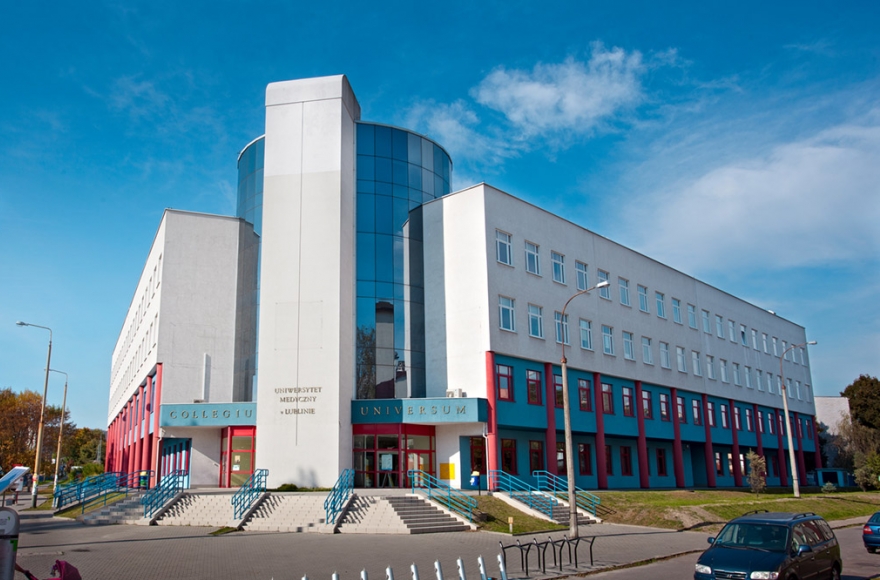
The Medical University of Lublin, located in Lublin, Poland, is a prestigious institution known for its excellence in medical education, research, and healthcare services. With a rich history dating back to its establishment in 1944, the university has continually evolved to meet the changing needs of society while maintaining a commitment to academic rigor and innovation. In this comprehensive overview, we'll delve into the institution's history, academic programs, research initiatives, facilities, and its broader impact on healthcare and medical science.
The Medical University of Lublin traces its origins to the aftermath of World War II when Poland was undergoing significant reconstruction and development. In 1944, the university was founded as the Medical Academy in Lublin, initially offering programs in medicine and dentistry. Over the decades, the institution expanded its academic offerings and research endeavors, growing into a leading medical university in Poland and beyond.
The university offers a wide range of undergraduate, graduate, and postgraduate programs in various fields of medicine, dentistry, pharmacy, nursing, public health, and allied health sciences. These programs are designed to equip students with the knowledge, skills, and practical experience necessary for successful careers in healthcare. The curriculum integrates classroom learning with hands-on clinical training, ensuring that students receive a comprehensive education that prepares them to meet the challenges of modern healthcare practice.
Research is a cornerstone of the Medical University of Lublin's mission, with faculty and students actively engaged in groundbreaking research across various disciplines. The university is home to numerous research centers, institutes, and laboratories focused on areas such as cancer research, cardiovascular health, neuroscience, infectious diseases, and medical technology. Collaborations with national and international partners enhance the university's research capabilities and contribute to scientific advancements with real-world implications for healthcare.
The university boasts a diverse and accomplished faculty comprising renowned experts, researchers, and clinicians who are dedicated to excellence in teaching, research, and patient care. Faculty members bring a wealth of experience and expertise to the classroom, inspiring and mentoring the next generation of healthcare professionals. Their contributions to research and clinical practice enrich the academic environment and contribute to the university's reputation for academic excellence.
As a leading medical institution, the Medical University of Lublin is affiliated with several teaching hospitals and clinical facilities where students receive hands-on training under the supervision of experienced healthcare professionals. These clinical sites serve as valuable learning environments where students apply their knowledge in real-world settings, gaining practical skills and clinical insights that are essential for their future careers. The university's strong clinical partnerships ensure that students have access to a diverse range of patient populations and medical specialties, enriching their educational experience.
The Medical University of Lublin actively fosters international collaboration and exchange, partnering with universities, research institutions, and healthcare organizations around the world. Through exchange programs, joint research projects, and academic partnerships, the university promotes cross-cultural understanding, knowledge sharing, and collaboration on global health challenges. International students also enrich the university community, bringing diverse perspectives and experiences that enhance the learning environment for all.
The Medical University of Lublin's contributions to medical education, research, and healthcare have been widely recognized both nationally and internationally. The university consistently ranks among the top medical schools in Poland and is respected for its academic excellence, research output, and commitment to advancing healthcare. Its graduates are highly sought after by employers and go on to make significant contributions to healthcare delivery, medical research, and public health policy.
Medical University of Lublin stands as a beacon of excellence in medical education, research, and healthcare, shaping the future of medicine through its commitment to academic rigor, innovation, and social responsibility. With a legacy of excellence spanning over seven decades, the university continues to inspire and empower the next generation of healthcare professionals while making significant strides in advancing medical science and improving patient care.

Wroclaw Medical University (WMU), situated in Wroclaw, Poland, stands as a prestigious institution renowned for its excellence in medical education, research, and healthcare provision. Established in 1950, it has evolved into a leading center for medical sciences, drawing students and scholars from across the globe. This article delves into the rich history, academic programs, research endeavors, and contributions of WMU to healthcare and society.
Wroclaw Medical University traces its origins back to the aftermath of World War II when Poland, in its reconstruction phase, prioritized the establishment of institutions dedicated to healthcare and medical education. In 1950, the university was founded as a continuation of the tradition of medical education in Wroclaw, a city known for its academic heritage. Over the decades, it has grown significantly, adapting to changing educational paradigms and technological advancements while maintaining its commitment to excellence.
Wroclaw Medical University offers a wide array of undergraduate, graduate, and postgraduate programs catering to various disciplines within the medical sciences. These include Medicine, Dentistry, Pharmacy, Public Health, Nursing, and Medical Biotechnology, among others. The curriculum is designed to provide students with a comprehensive understanding of theoretical knowledge, practical skills, and ethical principles essential for their professional development.
The university fosters a dynamic learning environment characterized by innovative teaching methods, interdisciplinary collaboration, and clinical exposure. Students benefit from state-of-the-art facilities, including laboratories, simulation centers, and affiliated hospitals, where they receive hands-on training under the guidance of experienced faculty members and healthcare professionals.
Wroclaw Medical University emphasizes internationalization and encourages student mobility through exchange programs, allowing them to gain insights into different healthcare systems, cultures, and practices. Additionally, the university offers several programs taught entirely in English, attracting a diverse student body from various countries
Research is integral to the mission of Wroclaw Medical University, driving innovation, advancing medical knowledge, and addressing societal health challenges. The university houses numerous research centers, institutes, and laboratories dedicated to various fields such as oncology, cardiology, neurology, and infectious diseases, among others. Faculty members and researchers engage in interdisciplinary collaborations, both nationally and internationally, contributing to groundbreaking discoveries and scientific publications.
Wroclaw Medical University prioritizes translational research aimed at bridging the gap between basic science and clinical practice, thereby facilitating the development of new therapies, diagnostic tools, and treatment modalities. Moreover, the university actively participates in collaborative research projects funded by national and international agencies, further enhancing its research capabilities and impact.
Wroclaw Medical University influence extends far beyond national borders, as evidenced by its extensive network of international partnerships and collaborations. The university collaborates with renowned academic institutions, research centers, and healthcare organizations worldwide, fostering exchange programs, joint research projects, and faculty exchanges.
These collaborations not only enrich the academic experience of students and faculty but also contribute to the global advancement of medical science and healthcare delivery. By sharing expertise, resources, and best practices, Wroclaw Medical University strengthens its position as a global leader in medical education, research, and innovation.
Wroclaw Medical University stands as a beacon of excellence in medical education, research, and healthcare provision. With a rich history, diverse academic programs, research prowess, and a commitment to societal impact, the university continues to shape the future of medicine and improve the well-being of individuals and communities. As it embarks on its journey towards greater heights of achievement, WMU remains dedicated to its core values of integrity, excellence, and compassion, serving as a model institution for medical education and healthcare worldwide.
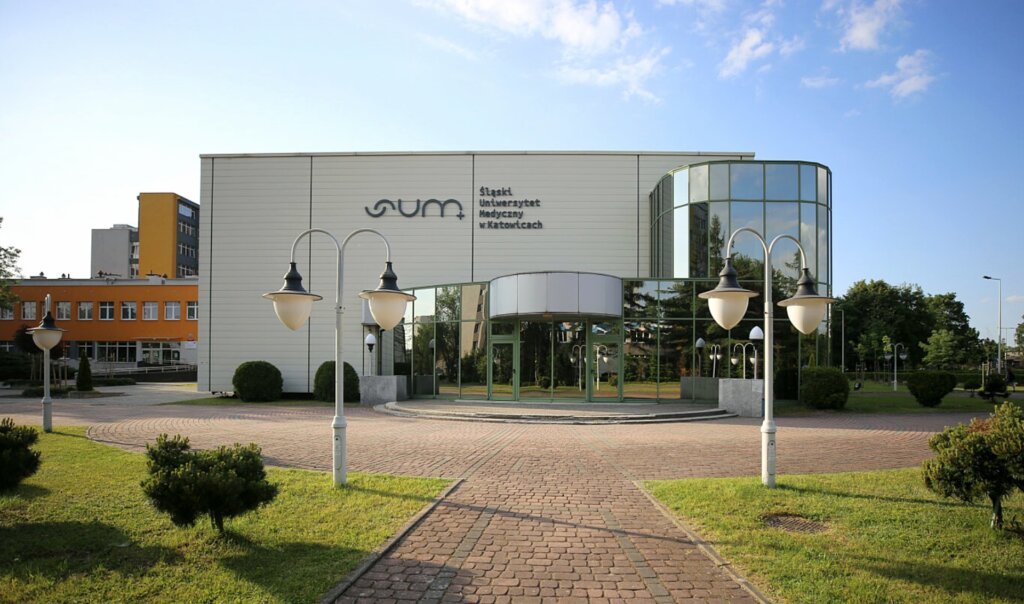
The Medical University of Silesia (SUM) in Poland is one of the leading medical institutions in the country, known for its excellence in medical education, research, and healthcare services. With a rich history dating back to its establishment in 1948, the university has evolved into a prestigious center for medical studies, attracting students and scholars from across the globe. This comprehensive institution encompasses various faculties, research centers, and clinical facilities, all dedicated to advancing medical knowledge and improving healthcare outcomes.
Located in the southern region of Poland, the Medical University of Silesia operates across multiple campuses in cities such as Katowice, Zabrze, Sosnowiec, and Bytom. This strategic distribution allows the university to have a significant presence in the Silesian Voivodeship, serving both urban and rural communities with medical education and healthcare services.
The Medical University of Silesia offers a wide range of undergraduate, graduate, and postgraduate programs in various medical disciplines. These programs include Medicine, Dentistry, Pharmacy, Nursing, Medical Analytics, and Medical Biotechnology, among others. The university's curriculum is designed to provide students with a comprehensive understanding of medical sciences, clinical skills, and research methodologies, preparing them for successful careers in healthcare.
The faculty members at The Medical University of Silesia are renowned experts in their respective fields, comprising experienced clinicians, researchers, and educators. They are committed to delivering high-quality education and mentorship to students, fostering intellectual growth and professional development. Additionally, the university frequently collaborates with international institutions and experts, enriching its academic environment and promoting global perspectives in medical education and research.
Research is a cornerstone of the Medical University of Silesia, with faculty members and students actively engaged in cutting-edge studies across various medical disciplines. The university's research initiatives encompass basic science research, clinical trials, translational research, and health services research, addressing a wide range of healthcare challenges and contributing to advancements in medical knowledge and technology.
The Medical University of Silesia maintains state-of-the-art research facilities and collaborates with other academic institutions, government agencies, and industry partners to support interdisciplinary research projects and innovation. The university encourages student involvement in research activities, providing opportunities for hands-on experience and mentorship under the guidance of experienced researchers.
In addition to its academic and research endeavors, the Medical University of Silesia plays a vital role in delivering healthcare services to the community. The university operates several affiliated teaching hospitals, clinics, and medical centers where students receive practical training under the supervision of licensed healthcare professionals. These clinical facilities offer a wide range of medical specialties and services, catering to the healthcare needs of patients from diverse backgrounds.
The university's healthcare services are known for their quality, accessibility, and patient-centered approach. Medical students, residents, and faculty members work collaboratively to deliver compassionate care, utilizing the latest medical technologies and evidence-based practices. Moreover, SUM is actively involved in community outreach programs, health promotion initiatives, and public health campaigns aimed at improving population health and well-being.
The Medical University of Silesia maintains a strong emphasis on international collaboration and exchange, fostering partnerships with academic institutions, healthcare organizations, and professional associations worldwide. The university welcomes international students for academic programs, research opportunities, and clinical rotations, promoting cultural diversity and global perspectives within its academic community.
Through exchange programs such as Erasmus+, students and faculty members have the opportunity to study abroad, participate in joint research projects, and engage in cross-cultural learning experiences. These international collaborations not only enrich the educational experience but also facilitate the exchange of knowledge and best practices in healthcare delivery and medical research.
Medical University of Silesia stands as a beacon of excellence in medical education, research, and healthcare services in Poland and beyond. With its commitment to academic rigor, scientific innovation, and compassionate patient care, the university continues to shape the future of medicine and contribute to the advancement of global health. As it moves forward, the Medical University of Silesia remains dedicated to its mission of educating the next generation of healthcare professionals, advancing medical knowledge through research, and serving the needs of society with excellence and integrity.

The Medical University of Bialystok (MUB) in Poland stands as a beacon of excellence in medical education, research, and healthcare provision. With a rich history dating back to its establishment in 1950, the university has continuously evolved to meet the dynamic demands of the healthcare landscape while upholding its commitment to academic rigor and societal service. In this comprehensive overview, we delve into the institution's history, academic programs, research endeavors, and contributions to the local and global healthcare community.
The Medical University of Bialystok traces its origins to the aftermath of World War II when Poland was undergoing significant reconstruction and development in various sectors, including education and healthcare. In 1950, the university was founded as the Medical Academy in Bialystok, initially offering programs in medicine and dentistry. Over the decades, the institution expanded its academic offerings, infrastructure, and research capabilities, eventually earning recognition as a prominent medical university in Poland and beyond.
The Medical University of Bialystok offers a diverse range of undergraduate, graduate, and postgraduate programs catering to aspiring healthcare professionals and researchers. The cornerstone of its academic offerings remains its medical and dental programs, renowned for their comprehensive curriculum, innovative teaching methods, and emphasis on practical training. Additionally, the university provides programs in pharmacy, nursing, public health, and other allied health disciplines, reflecting its commitment to addressing multifaceted healthcare needs.
At the undergraduate level, students undergo rigorous training in foundational sciences, clinical skills, and professional ethics, preparing them for the challenges of modern healthcare practice. Graduate and postgraduate programs offer specialized training in various medical specialties, allowing students to pursue advanced studies and research in their areas of interest. MUB's commitment to academic excellence is evident in its accreditation by national and international regulatory bodies, ensuring that its graduates meet stringent standards of competency and professionalism.
Research is a cornerstone of Medical University of Bialystok mission, driving advancements in medical knowledge, technology, and patient care. The university houses state-of-the-art research facilities and collaborates with renowned institutions and industry partners to conduct cutting-edge research across diverse fields. From basic biomedical research to clinical trials and translational studies, MUB researchers are at the forefront of scientific discovery, addressing pressing healthcare challenges and contributing to global knowledge dissemination.
The university fosters a culture of innovation and entrepreneurship, encouraging faculty and students to pursue novel solutions to healthcare problems. Through interdisciplinary collaboration and technology transfer initiatives, The Medical University of Bialystok translates research findings into practical applications, benefiting both patients and the broader healthcare ecosystem. Moreover, the university actively engages in international research collaborations, leveraging collective expertise to tackle global health issues and promote scientific exchange.
As a leading medical institution, The Medical University of Bialystok is deeply embedded in the local healthcare landscape, playing a vital role in patient care, community outreach, and health promotion initiatives. The university operates affiliated teaching hospitals and clinics where students gain hands-on clinical experience under the supervision of experienced faculty members. These clinical facilities not only serve as training grounds for future healthcare professionals but also provide essential medical services to the community, including specialized care and diagnostic services.
The Medical University of Bialystok is committed to fostering international collaboration and cultural exchange, recognizing the importance of global perspectives in healthcare education, research, and practice. The university welcomes students, faculty, and researchers from diverse backgrounds, creating a vibrant and inclusive academic community enriched by cross-cultural dialogue and collaboration. Through international student exchange programs, joint research projects, and participation in global health initiatives, MUB contributes to the advancement of medical science and promotes mutual understanding among nations.
The Medical University of Bialystok epitomizes excellence in medical education, research, and healthcare provision, embodying a legacy of academic distinction, scientific innovation, and social responsibility. With its comprehensive academic programs, cutting-edge research endeavors, and unwavering commitment to community engagement and global collaboration, The Medical University of Bialystok continues to shape the future of healthcare while upholding its core values of integrity, excellence, and compassion. As it moves forward, the university remains dedicated to advancing medical science, training the next generation of healthcare leaders, and making a positive impact on the health and well-being of individuals and communities worldwide.
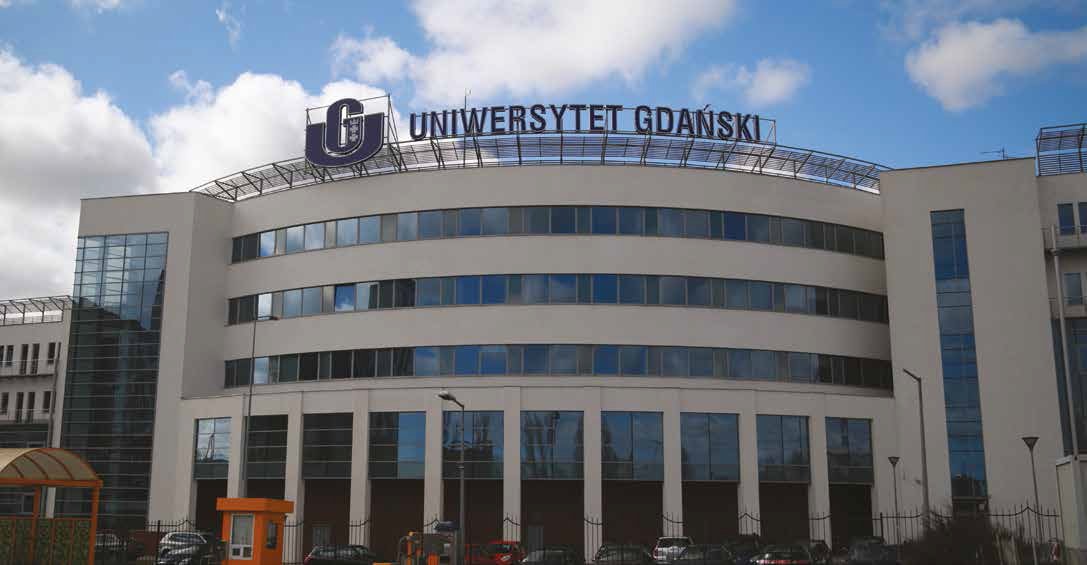
The University of Gdansk, located in the vibrant coastal city of Gdańsk, Poland, offers a distinguished medical program that combines academic excellence with practical training and research opportunities. With its rich history, modern facilities, and dedicated faculty, The University of Gdansk, medical program attracts students from around the world seeking a high-quality education in medicine.
Founded in 1970, the Faculty of Medicine at the University of Gdansk has since established itself as a leading institution in medical education and research. The medical program at the University of Gddansk is designed to provide students with a comprehensive understanding of medical science, clinical practice, and research methodologies.
The medical program at the University of Gdansk follows a structured curriculum that encompasses both theoretical knowledge and practical skills. The program typically spans six years and is divided into preclinical and clinical phases.
In the preclinical phase, students focus on foundational courses in basic sciences such as anatomy, physiology, biochemistry, pharmacology, and pathology. These courses provide students with a solid understanding of the biological mechanisms underlying health and disease.
As students progress to the clinical phase, they begin to apply their knowledge in real-world medical settings. Clinical rotations allow students to work alongside experienced physicians and healthcare professionals in hospitals, clinics, and other healthcare facilities. During this phase, students gain hands-on experience in various medical specialties, including internal medicine, surgery, pediatrics, obstetrics and gynecology, psychiatry, and more.
Throughout the program, students also have opportunities to participate in research projects and elective courses tailored to their interests. These experiences foster critical thinking skills and prepare students for careers in academic medicine, research, or specialized clinical practice.
The University of Gdansk medical program boasts a dedicated faculty comprised of experienced physicians, researchers, and educators. The faculty members are renowned experts in their respective fields and are committed to providing students with the highest quality education.
The university's modern facilities include state-of-the-art laboratories, lecture halls, and simulation centers equipped with advanced medical technology. These resources enhance the learning experience and allow students to practice clinical skills in a simulated environment before working with patients.
Additionally, the university maintains partnerships with leading hospitals and healthcare institutions in Gdansk and beyond, providing students with access to diverse clinical settings and patient populations.
Research is an integral component of the medical program at the University of Gdansk. Students have the opportunity to engage in research projects under the guidance of faculty mentors, exploring topics ranging from basic science to clinical research.
The university's research facilities are equipped with cutting-edge technology and resources to support student-led research initiatives. Whether conducting laboratory experiments, clinical trials, or epidemiological studies, students gain valuable research experience that prepares them for careers in academic medicine or scientific research.
The University of Gdansk is committed to fostering international collaboration and cultural exchange. The medical program welcomes students from around the world and offers exchange programs and partnerships with universities and healthcare institutions globally.
Through these programs, students have the opportunity to study abroad, participate in international research projects, and gain exposure to different healthcare systems and medical practices. These experiences broaden students' perspectives and prepare them to work in diverse healthcare environments. Clinical training is a cornerstone of the medical program at the University of Gdansk. Students spend a significant portion of their education in clinical settings, where they gain hands-on experience working with patients under the supervision of experienced physicians.
Clinical rotations expose students to a wide range of medical specialties and patient populations, allowing them to develop clinical skills and bedside manner. Students learn to diagnose and treat medical conditions, communicate effectively with patients and colleagues, and make evidence-based decisions in clinical practice.
In addition to clinical training, the medical program emphasizes professional development and ethical practice. Students learn about medical ethics, patient confidentiality, and cultural competence, preparing them to uphold the highest standards of professionalism in their future careers.
Graduates of the medical program at the University of Gdansk are well-prepared to pursue careers in medicine across various specialties and settings. Whether entering primary care, specialty practice, academic medicine, or research, graduates possess the knowledge, skills, and experience needed to excel in their chosen field.
The university's strong reputation and extensive network of alumni provide graduates with valuable connections and opportunities for career advancement. Many graduates choose to pursue residency training or fellowship programs to further specialize in their area of interest, while others may pursue careers in healthcare administration, public health, or medical education.
Overall, the medical program at the University of Gdansk offers a comprehensive and rigorous education that prepares students for successful careers in medicine. With its emphasis on academic excellence, research, and clinical training, the program equips graduates with the skills and expertise needed to make meaningful contributions to the field of healthcare and improve the lives of patients worldwide.

Pomeranian Medical University (PUM) in Szczecin, Poland, offers a distinguished medical program renowned for its comprehensive curriculum, innovative research opportunities, and hands-on clinical training. Situated in the historic city of Szczecin, Pomeranian Medical University provides students with a rich academic environment supported by state-of-the-art facilities and a dedicated faculty. With a focus on academic excellence, patient-centered care, and professional development, PUM's medical program prepares students to become compassionate, competent physicians equipped to address the healthcare needs of diverse populations.
Pomeranian Medical University medical program follows a structured curriculum designed to provide students with a solid foundation in medical science, clinical practice, and research methodologies. The program typically spans six years and is divided into preclinical and clinical phases.
During the preclinical phase, students engage in foundational courses covering subjects such as anatomy, physiology, biochemistry, pharmacology, and pathology. These courses lay the groundwork for understanding the biological mechanisms underlying health and disease, preparing students for more advanced clinical studies.
As students progress to the clinical phase, they have the opportunity to apply their knowledge in real-world medical settings. Clinical rotations take place in hospitals, clinics, and other healthcare facilities, allowing students to work alongside experienced physicians and healthcare professionals. Through these rotations, students gain hands-on experience in various medical specialties, including internal medicine, surgery, pediatrics, obstetrics and gynecology, psychiatry, and more.
Throughout the program, students also have opportunities to participate in research projects and elective courses tailored to their interests. These experiences foster critical thinking skills and prepare students for careers in academic medicine, research, or specialized clinical practice.
Pomeranian Medical University medical program is supported by a dedicated faculty comprised of experienced physicians, researchers, and educators. The faculty members are committed to providing students with the highest quality education, offering mentorship and guidance both inside and outside the classroom.
The university's modern facilities include state-of-the-art laboratories, lecture halls, and simulation centers equipped with advanced medical technology. These resources enhance the learning experience and allow students to practice clinical skills in a simulated environment before working with patients.
Pomeranian Medical University also maintains partnerships with leading hospitals and healthcare institutions in Szczecin and beyond, providing students with access to diverse clinical settings and patient populations. These partnerships facilitate clinical training and research collaborations, enriching the educational experience for students.
Research is an integral component of the medical program at PUM. Students have the opportunity to engage in research projects under the guidance of faculty mentors, exploring topics ranging from basic science to clinical research.
The university's research facilities are equipped with cutting-edge technology and resources to support student-led research initiatives. Whether conducting laboratory experiments, clinical trials, or epidemiological studies, students gain valuable research experience that prepares them for careers in academic medicine or scientific research.
Pomeranian Medical University is committed to fostering international collaboration and cultural exchange. The medical program welcomes students from around the world and offers exchange programs and partnerships with universities and healthcare institutions globally.
Through these programs, students have the opportunity to study abroad, participate in international research projects, and gain exposure to different healthcare systems and medical practices. These experiences broaden students' perspectives and prepare them to work in diverse healthcare environments.
Clinical training is a cornerstone of the medical program at Pomeranian Medical University. Students spend a significant portion of their education in clinical settings, where they gain hands-on experience working with patients under the supervision of experienced physicians.
Clinical rotations expose students to a wide range of medical specialties and patient populations, allowing them to develop clinical skills and bedside manner. Students learn to diagnose and treat medical conditions, communicate effectively with patients and colleagues, and make evidence-based decisions in clinical practice.
In addition to clinical training, the medical program emphasizes professional development and ethical practice. Students learn about medical ethics, patient confidentiality, and cultural competence, preparing them to uphold the highest standards of professionalism in their future careers.
Graduates of Pomeranian Medical University medical program are well-prepared to pursue careers in medicine across various specialties and settings. Whether entering primary care, specialty practice, academic medicine, or research, graduates possess the knowledge, skills, and experience needed to excel in their chosen field.
The university's strong reputation and extensive network of alumni provide graduates with valuable connections and opportunities for career advancement. Many graduates choose to pursue residency training or fellowship programs to further specialize in their area of interest, while others may pursue careers in healthcare administration, public health, or medical education.
Overall, the medical program at Pomeranian Medical University in Szczecin offers a comprehensive and rigorous education that prepares students for successful careers in medicine. With its emphasis on academic excellence, research, and clinical training, the program equips graduates with the skills and expertise needed to make meaningful contributions to the field of healthcare and improve the lives of patients worldwide.